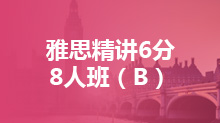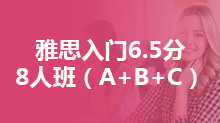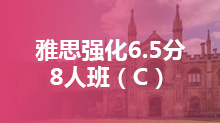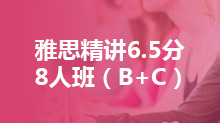一年一度的甜咸粽子之争又开始啦,别光顾着吃粽子,一起来听听端午那些事儿。
屈原跳汨罗江,百姓献祭粽子的故事,每年都要被拿出来说一次,想必大家耳朵都听得起茧了,但是用英语讲述这个故事的话,大家还会吗↓↓↓
It was a clear night, moonlight pouring onto the surface of the Miluo River, as Qu Yuan, hair disheveled, wandered by the river, sighing. "This was not the way my life was supposed to be," he thought,"and I refused to succumb to those lowly villains." He would prove his moral integrity and spiritual purity, even if to no one but himself. Strapping a big rock to himself, Qu Yuan plunged into the roaring Miluo River.
这一天晚上,月光如水照在江面,他披散着头发,在汨罗江边徘徊,不住地叹息着。他实在不想在这样的世道中苟延残喘下去,不想向那些小人低头。他要用实际行动证明自己的清白,至少保全精神的洁净。他抱着一块石头,纵身跳入滚滚流淌的汨罗江。
At the news of Qu Yuan's death, the populace of Chu flocked to the riverside bearing food for the mourning ritual. As boatmen rowed madly to and fro on the river, trying to retrieve his body, someone tossed a rice ball into the river, crying, "All you fish and shrimp leave Lord Qu's body alone. Here's some food for you instead!" People along the river joined him. This is the origin of today's zongzi, sticky rice wrapped in lotus leaves and bound by colorful strings, which are enjoyed each year at the Dragon Boat Festival.
楚国的老百姓听闻屈原的死讯,都自发地带着食物,跑到江边凭吊。渔夫们努力地划着船,来回一遍又一遍,四处寻觅,想要在江上打捞他的尸体。这时,有一个人将饭团丢进江里,喊着:“鱼虾们,你们千万不要吃屈大夫的身体,你们来吃这些饭团吧!”顿时,江边的人们哭作一团,纷纷仿效。后来人们用荷叶来包糯米,外面缠上五彩丝线,就形成了今天的粽子。
——《用英语讲中国故事》提
端午的纪念
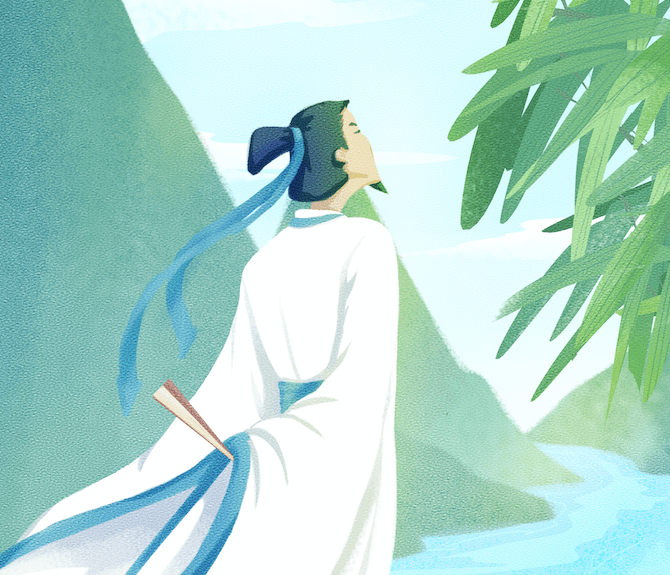
端午居于五月之始,气候转暖加上梅雨到来,高温湿热伴随蚊蝇孳生,正是传染病高发季节,因而驱瘟一直是端午的重要内容。在久远的历史演变中,炎黄儿女在其中慢慢融入了夏月“防时疫”的风尚。
民谚曰:“端午节,天气热,五毒醒,不安宁。”打扫庭院、采草药、插艾草、喝雄黄酒、做五毒饼、系彩绳、抓蛤蟆,这些都是古人端午为了防疫辟邪的必备节目。
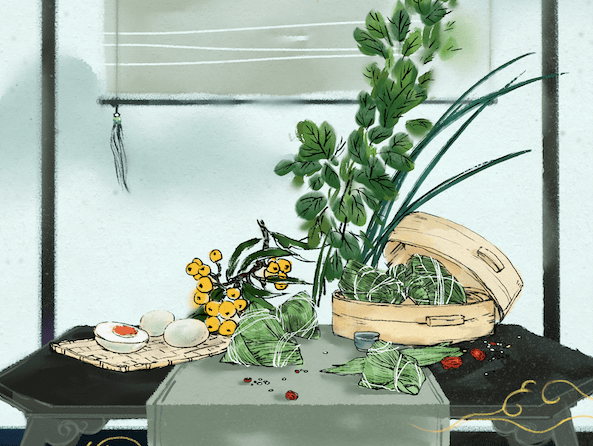
可能有同学要问了,这些习俗我都懂,可是抓蛤蟆是什么梗?
让我们穿越回明朝万历年间的端午节,一探究竟......
按照之前的端午惯例,宫里的内侍们一早儿就已穿好带有艾虎补子的蟒衣,在腰间挂好了放有艾草的香囊,梳洗完毕。
接下来他们要完成的工作是:把放有菖蒲和艾草的盆摆在宫门两边,门上也要悬挂绘有“天师执剑降毒”的画屏,洒扫好了宫里内内外外,然后相约结伴去观赏石榴花。
万历皇帝也没闲着,他先要很有“仪式感”地饮完混有朱砂、菖蒲、雄黄等物的驱邪避毒酒。紧接着去观看大家“赛龙舟”,然后去万岁山看御马监的士兵跑马,士兵们也一个个憋足了劲儿想争个头名好领皇上的封赏。
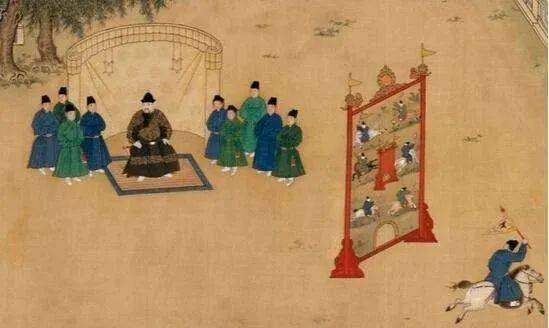
今天无论到哪都是一副朝气蓬勃的样子,唯有一物对这天深恶痛绝,那就是——蛤蟆!
因为每年的端午,太医院都会兴师动众派一群人到海子(明代皇家园囿)去围捕蛤蟆......抓蛤蟆干嘛?制紫金锭(传说是一种辟秽解毒的急救药物)。
明朝蒋一葵的《长安客话》中有记载:“太医院例于端阳日差官至海子,捕蝦蟆挤酥以合药,制紫金锭。”
而且不光宫里抓,老百姓们在玩乐之余也会自发参加到“捕蛤队伍”中,他们除了制药之外还会用死了的蛤蟆招来大批蚊子,然后趁此机会对蚊子来个“团灭”!
这一习俗的起源非常古老,东汉崔寔(shí)的《四民月令》中就有记载:
“五月五日,取蟾蜍,可合恶疽疮。”
古人认为农历五月初五这天是“最毒的一天”,你看《新白娘子传奇》中,在端午前几天小青就已经开始气血翻腾想要避走了!
他们认为端午那天白昼最长,阳极转阴浊气上升,所有的毒虫都会受不住,从地下翻腾出来,而那天的毒虫毒性最纯,价值也,所以才会在那天集体“出手”。

抓蛤蟆,这项古人端午的防疫必备节目,对我们来说已不大适用了,但是还有一些流传下来的端午习俗也可以帮助我们祛病防疫,最后小编再给大家介绍一些端午节相关的英文说法,赶快拿小本本记下来:
关键词
端午节
Dragon Boat Festival
《牛津英语词典》(The Oxford English Dictionary,简称 OED)收录了“端午节”的英文 Dragon Boat Festival(字面意为“龙舟节”),其定义如下:
The dragon boat festival, believed to have been celebrated for over 2,000 years, takes place on the fifth day of the fifth lunar month of the Chinese calendar throughout China and in Chinese communities worldwide. It commemorates the death of Qu Yuan (c340–278 b.c.), China's first known poet, who drowned himself when his home state of Chu was overthrown; the dragon boat races traditionally represent the search for his body.
端午节在农历 5 月 5 日,已有 2000 多年的历史,中国各地和全球的华人共同庆祝。这个节日纪念的是中国位诗人屈原,他因故土楚国灭亡而投江自尽。龙舟竞渡的传统就是当时人们搜寻他的遗体而演化来的。
屈原
Qu Yuan
A Chu high-ranking official Qu Yuan(屈原)recommended talented people and laws for internal government and an alliance against the powerful Kingdom of Qin as Chu's foreign policy. He was a man of rare talent in Chu, but his forceful advocacy met with rejection from the Chu aristocracy, and he was successively exiled by the king of Chu to the Hanbei and Hunan areas. Finally the Qin army destroyed Qu Yuan's beloved capital city - Yingdu. The king of Chu abandoned his country, and fled in panic. This combination of national and personal disasters was too much for Qu Yuan to bear, and he ended his life by throwing himself into the Miluo River. That day was the fifth day of the fifth lunar month.
楚国有一位三闾大夫名叫屈原。屈原在内政上主张选贤立法,外交上主张联合抗秦,是楚国不可多得的人才。可是,屈原的锋芒毕露遭到了楚国贵族的排挤,几次被楚王流放汉北、沅湘地区。最后,秦国的大将攻破了屈原日思夜想的故国首都郢都,楚王置江山社稷于不顾,仓皇而逃。集国恨家仇于一身的屈原悲痛欲绝,在汨罗江投江自尽,这一天正好是农历五月初五。
划龙舟
Dragon Boat Racing
This activity is to symbolize the people trying to disperse fish away from Qu Yuan’s body so that it would not be eaten. Dragon Boat racing has evolved into not only a widely celebrated activity, but also an international sport.
划龙舟象征着人们试图驱赶河鱼,不让它们吞吃屈原的身体。后来龙舟竞渡不但逐渐演化为端午的庆祝活动,也成为一项国际赛事。
粽子
zongzi
Zongzi, or glutinous rice wrapped in bamboo leaves, is symbolized in a way similar to that of Dragon Boat racing. To protect Qu Yuan’s body from being eaten by fish, people would feed the fish Zongzi instead. Of course, in modern times, rather than throw the delicacies into the water, people eat them in celebration of the festival. Zongzi from different regions also differ in taste and texture!
粽子,糯米饭包在竹叶里的一种食物,和划龙舟有着异曲同工之妙的寓意。为了保护屈原的身体不被鱼吃掉,人们会用粽子喂鱼。当然,与其将美味的粽子投入河中,现今的我们选择在端午节时享用粽子。在不同的地区,粽子的风味及口感也有差异。
香包
Sachets
It is a custom to carry colorful silk sachets filled with herbs and other aromatics during the festival. This is said to ward off and protect people (typically children) from evil and bad spirits.
这项习俗是人们会在端午节佩戴着五彩缤纷、内含药草香料的香包。传说中是为了要保护人们(尤其是孩童)不受到恶灵攻击。
雄黄酒
Realgar Wine
"Drinking realgar wine drives diseases and evils away!" Realgar wine, or xionghuangjiu, is a Chinese alcoholic drink consisting of fermented cereals and powdered realgar.
老话说:喝雄黄酒能够驱魔辟邪。雄黄酒由发酵的谷物和雄黄粉酿制而成。
咸鸭蛋
Salted Duck Eggs
Tradition has it that it is good to eat salted duck eggs during the Dragon Boat Festival as the burning summer would be coming. The salted duck eggs are nutrient-rich and have some effect on the treatment of heat stroke.
传统认为,在端午节吃咸鸭蛋有益健康,因为灼热的夏天很快就要来临了。咸鸭蛋营养丰富,对治疗中暑有一定功效。

